Why Cloud Security and Data Residency Are Critical for Inventory Systems in the UAE
In the UAE, businesses across retail, manufacturing, and distribution are increasingly relying on inventory management software to track stock, manage warehouses, and streamline operations. With the rise of digital transformation, traditional manual systems are no longer sufficient to maintain accuracy, compliance, and operational efficiency.
The UAE’s regulatory landscape adds another layer of responsibility. Companies must comply with the Federal Tax Authority (FTA) regulations, VAT reporting requirements, and strict data residency guidelines. Without a secure and compliant inventory management software solution, businesses risk not only operational inefficiencies but also financial penalties and reputational damage.
Modern solutions do more than just track stock, they act as the backbone of business compliance. From maintaining accurate transaction logs to generating VAT-compliant reports, a robust software system ensures businesses remain audit-ready at all times. Furthermore, by leveraging cloud-enabled software, companies can access real-time data across multiple warehouses, improve forecasting, and enhance supply chain visibility.
As UAE businesses grow and expand regionally, the need for secure, reliable, and compliant inventory management software is no longer optional, it’s a necessity. Cloud security and data residency compliance are critical components that every organization must consider when selecting its next inventory management platform.
The Cost of Inefficiency and Missed Opportunities
Inefficient inventory management doesn’t just slow operations, it directly hits the bottom line for UAE businesses. In high-turnover sectors like retail, F&B, pharmaceuticals, and logistics, delays, inaccuracies, or stock mismanagement translate into lost revenue, unhappy customers, and missed growth opportunities.
- Overstocking and Capital Tied Up
Without accurate forecasting and real-time tracking, businesses often overstock items to avoid shortages. While this may prevent stockouts, it locks capital in unsold inventory, increases storage costs, and risks obsolescence, especially for electronics, fashion, or perishable goods prevalent in UAE markets. Inventory management software uses historical data, seasonal trends, and automated alerts to optimize stock levels, freeing up capital for other strategic investments. - Stockouts and Lost Sales
Conversely, understocking can be equally damaging. Imagine a Dubai electronics retailer unable to meet customer demand during a peak shopping season like Ramadan or Dubai Shopping Festival. Stockouts not only result in immediate lost sales but can also erode customer trust and brand loyalty. Real-time inventory management ensures alerts for low-stock items, enabling timely reordering and minimizing lost revenue. - Operational Delays and Inefficiency
Manually tracking inventory slows down workflows across procurement, warehousing, and sales. Employees spend excessive time locating items, verifying stock, or reconciling counts. In fast-paced UAE markets where speed is critical, these inefficiencies can prevent businesses from scaling operations or fulfilling large orders on time. It streamlines operations with automated workflows, barcode/RFID scanning, and centralized dashboards. - Complex Multichannel Operations
Many UAE businesses operate across multiple sales channels, physical stores, online marketplaces, and third-party platforms. Without integrated inventory management, maintaining accurate stock levels across these channels is challenging, leading to overselling, cancellations, or customer complaints. Inventory management software synchronizes inventory across all channels, providing a unified view and ensuring seamless customer experiences. - Impact on Supplier and Partner Relations
Errors in inventory management affect supplier relationships. Late orders, mismatched shipments, or inaccurate demand forecasts can strain partnerships and limit negotiating power. UAE businesses using inventory management software can generate accurate forecasts, automate replenishment, and maintain strong supplier relationships, ensuring smoother operations.
The Operational Challenges of Manual Inventory Management
Managing inventory manually is increasingly impractical for UAE businesses, where the pace of trade, retail, and logistics is rapidly accelerating. Companies relying on spreadsheets, paper logs, or fragmented legacy systems face a host of operational challenges that directly impact efficiency, profitability, and competitiveness.
- Stock Inaccuracies and Shrinkage
Manual tracking is prone to human error. Counting mistakes, misplaced items, and mislabeling can lead to overstocking or stockouts. For UAE-based retailers, even a single miscount can affect high-value electronics, perishable goods, or imported luxury items, leading to lost sales and customer dissatisfaction. Inventory management software eliminates these errors with barcode scanning, RFID integration, and automated stock reconciliation. - Inefficient and Delayed Reporting
Gathering inventory data from multiple warehouses, stores, or outlets manually is slow, often requiring hours or even days to compile reports. This delay hampers timely decision-making for procurement, distribution, and demand planning. With inventory management software, UAE businesses gain real-time dashboards, automated alerts, and historical analytics, enabling faster and smarter decisions. - Poor Visibility Across Operations
Without centralized inventory control, companies struggle to understand their stock position across locations. For import-heavy UAE markets like Dubai and Abu Dhabi, this lack of visibility can result in stock being available in one warehouse while another outlet faces shortages. Inventory management software provides a single source of truth, showing exact quantities, location, and movement in real time. - Integration Challenges
Manual systems rarely integrate with other business operations like sales, procurement, or finance. This disconnect creates silos, slows workflows, and introduces the risk of double entries or lost data. By contrast, inventory management software seamlessly integrates with ERP, POS, and e-commerce platforms, ensuring smooth end-to-end operations. - Compliance and Traceability Pressure
Even without VAT considerations, UAE businesses must maintain accurate records for audits, customs, and industry-specific regulations. Manual systems make traceability difficult, especially for imported goods that require serial tracking, expiration management, or batch-level reporting. Inventory management software provides automatic record-keeping, making compliance simpler and audits less stressful. - Increased Labor Costs and Human Dependence
Manual inventory processes require significant manpower for counting, verification, and reporting. In UAE cities, where labor costs are rising, this not only increases operational costs but also exposes businesses to errors from overworked staff. Inventory management software automates repetitive tasks, reduces labor dependency, and frees employees for higher-value work.
Real-Time Inventory Visibility and Operational Efficiency
Inventory software is no longer a luxury, it’s a necessity. Businesses juggling multiple locations, warehouses, or retail outlets require a real-time view of stock levels, movements, and demand patterns. Inventory management software provides this visibility, allowing companies to track products, monitor reorder points, and prevent overstocking or stockouts.
For UAE-based companies, operational efficiency hinges on accurate data. With inventory management software, organizations can automate routine tasks such as:
- Stock level updates across multiple warehouses
- Alerts for low or surplus inventory
- Integration with procurement and sales workflows
This not only reduces human error but also speeds up decision-making. A company that can access real-time inventory data can respond faster to customer demand, optimize warehouse space, and improve cash flow.
Moreover, inventory management software often comes with reporting and analytics capabilities. Businesses can forecast trends, identify slow-moving products, and plan logistics more effectively. In a region like the UAE, where supply chains often span multiple countries, this visibility is critical for maintaining operational continuity and competitive advantage.
Cloud Security and Data Residency – Protecting Your Inventory Management Software in the UAE
For businesses in the UAE, inventory management software is not just about tracking stock, it’s about securing critical operational data. Cloud adoption has made inventory systems more flexible and scalable, but it also introduces security and compliance challenges. That’s why cloud security and data residency are crucial considerations for any company implementing inventory management software in the region.
Cloud Security for Inventory Management Software
Cloud-based inventory management software allows real-time access, remote monitoring, and integration across multiple business functions. However, without robust security measures, sensitive information such as stock levels, supplier contracts, and procurement schedules could be vulnerable to cyberattacks. Security features to prioritize include:
- End-to-end encryption of inventory data
- Multi-factor authentication for user access
- Continuous monitoring and threat detection
Data Residency Requirements in the UAE
UAE regulations increasingly emphasize that business data, especially critical operational data from inventory management software, should be stored within national borders. Local data residency ensures:
- Compliance with UAE data protection laws
- Faster access and lower latency for inventory updates
- Greater control over sensitive business information
Operational and Strategic Benefits
When solutions comply with cloud security and data residency requirements, businesses benefit from both operational efficiency and regulatory peace of mind. Secure systems reduce the risk of data breaches, protect supplier and customer information, and enable seamless scaling across multiple locations in the UAE.
In short, investing in cloud-secure and locally compliant IT is not just about IT, it’s about safeguarding your business’s backbone: its inventory, operations, and customer trust.
How HostBooks Enhances Inventory Management Software for UAE Businesses
For UAE companies, adopting inventory management software goes beyond tracking stock, it requires seamless integration, operational control, and secure data management. HostBooks provides a cloud-based platform that empowers businesses to manage their inventory efficiently while meeting regional compliance and operational demands.
Centralized Inventory Oversight
HostBooks consolidates inventory data across multiple warehouses, retail outlets, and suppliers into a single dashboard. Businesses using inventory management software with HostBooks can:
- Track stock levels in real time across all locations
- Minimize stockouts and overstock situations
- Reduce manual errors with automated updates
Secure Cloud Infrastructure
UAE enterprises face stringent expectations for data protection. HostBooks ensures inventory management software operates on a secure cloud platform with:
- End-to-end encryption for all inventory transactions
- Role-based access control for users
- Continuous monitoring to detect anomalies
Local Data Residency Support
HostBooks prioritizes UAE-based cloud infrastructure, ensuring inventory data stays within national borders. This enhances compliance with local regulations, reduces latency for real-time operations, and strengthens business trust.
Seamless Integration Across Business Processes
Integrated with HostBooks can interact with:
- Accounting and ERP systems for financial reconciliation
- Procurement and supplier management tools
- Sales channels and e-commerce platforms
Scalability and Flexibility
As businesses expand in the UAE, HostBooks ensures inventory management software scales effortlessly. Companies can add warehouses, retail locations, or product lines without restructuring their system, supporting sustainable growth and operational efficiency.
The Strategic Advantage of Inventory Management Software in the UAE
In the UAE, businesses operate in a fast-paced, highly regulated environment where efficiency, accuracy, and compliance are not optional, they are critical for survival. It is a strategic asset that drives operational control, reduces errors, and enhances business agility.
By leveraging cloud-based solutions like HostBooks, UAE companies can ensure that their inventory management software:
- Maintains secure and reliable cloud infrastructure
- Respects local data residency regulations
- Provides real-time visibility across warehouses, stores, and suppliers
- Integrates seamlessly with ERP, procurement, and sales systems
- Scales as the business grows without disruption
The combination of cloud security, data residency compliance, and advanced inventory features transforms inventory management software into a competitive advantage. Companies that invest in these capabilities gain greater operational efficiency, regulatory assurance, and the confidence to expand in the dynamic UAE market.
In short, it is supported by secure, compliant, and scalable platforms like HostBooks is not just about managing stock, it is about future-proofing your business, enhancing decision-making, and staying ahead

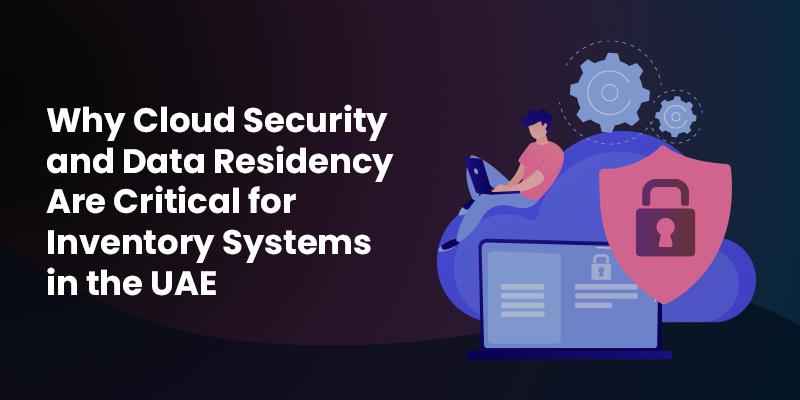






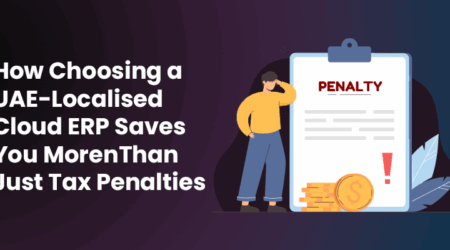
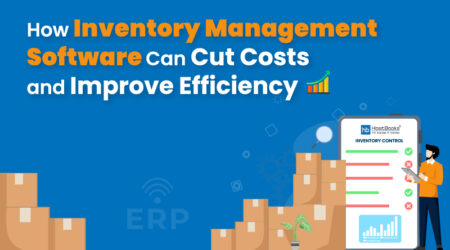
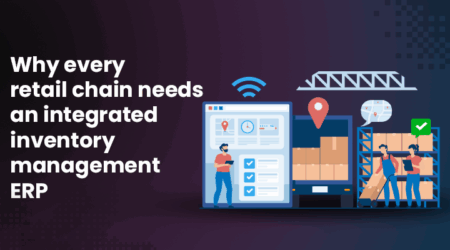
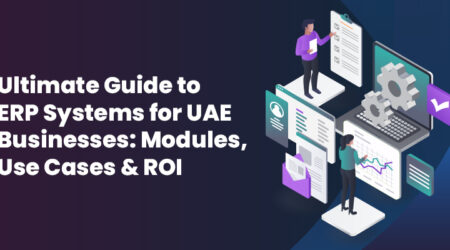
Leave a Reply